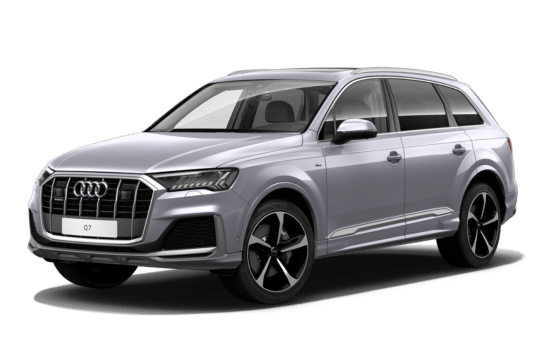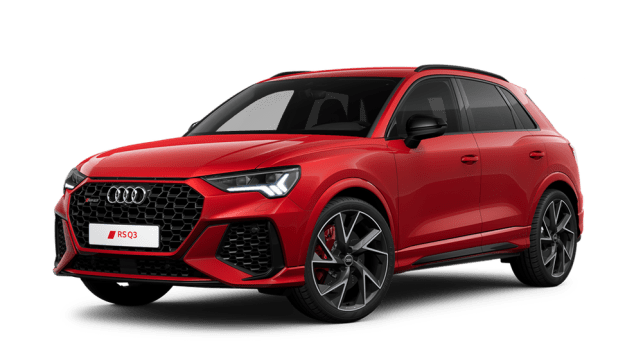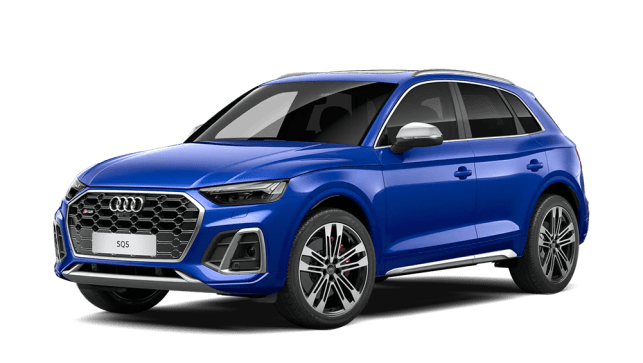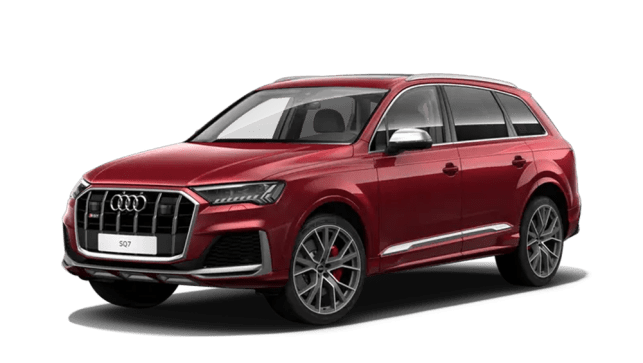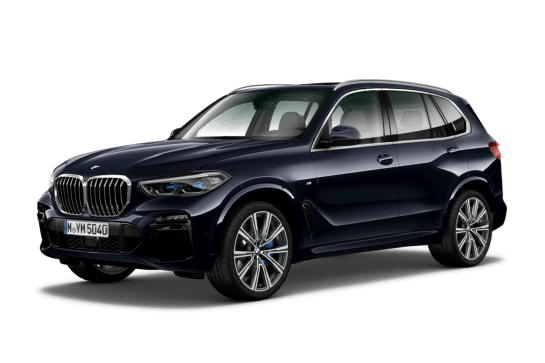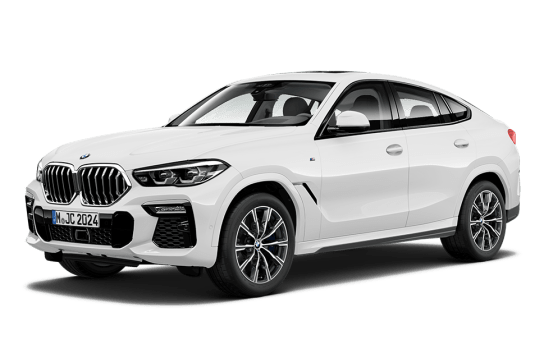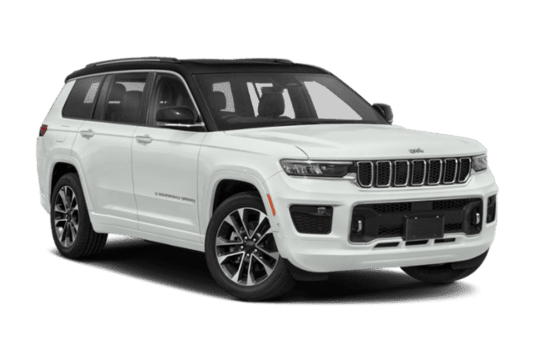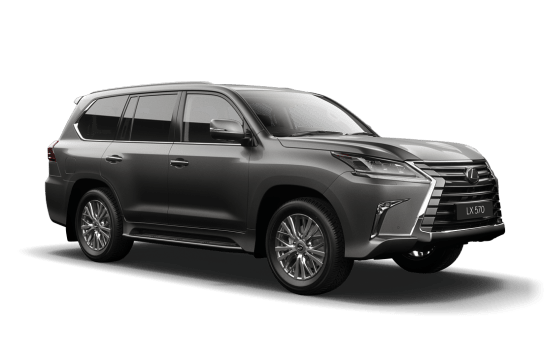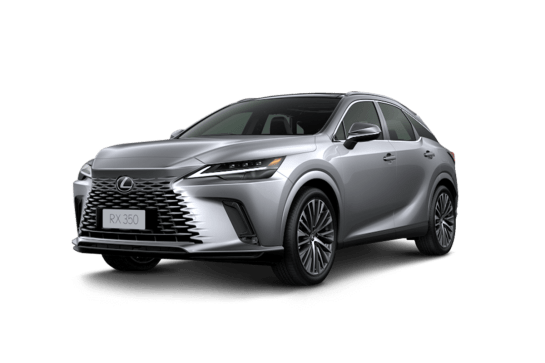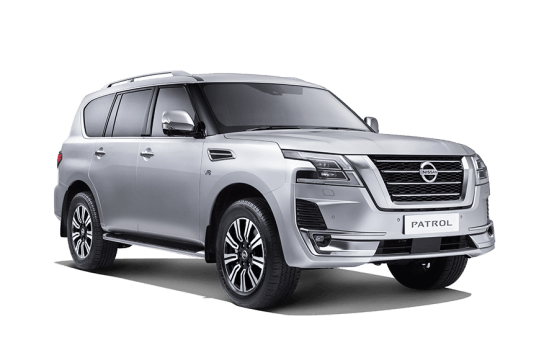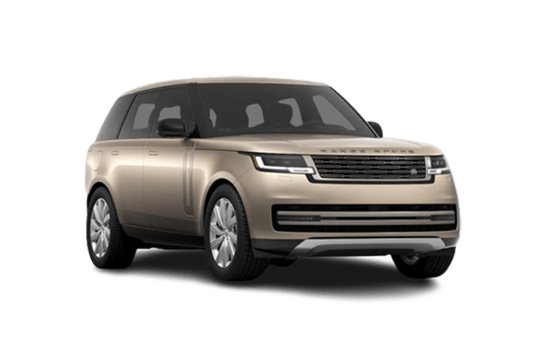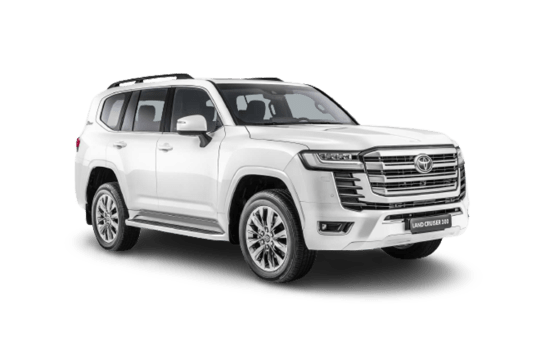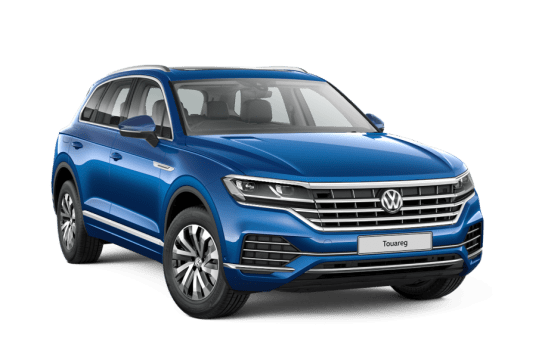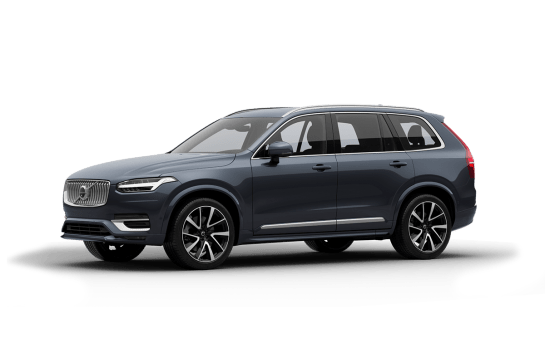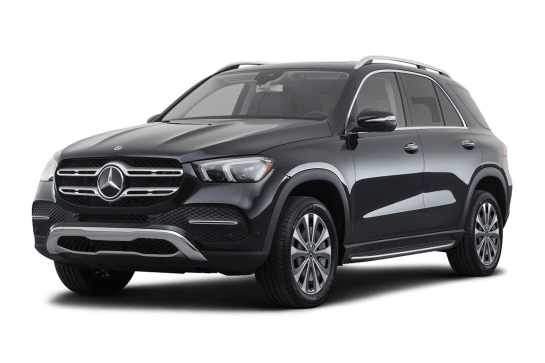
Mercedes-Benz GLE-Class VS Audi RS Q3
Mercedes-Benz GLE-Class
Likes
- In-line six engine
- Grand interior
- High-tech features
Dislikes
- Visibility
- Size
- Three-year warranty
Audi RS Q3
Likes
- 300kW small SUV? Yes please!
- Great dynamics but comfy ride
- Spacious with a decent boot
Dislikes
- Sportback has less headroom
- No standard head-up display
- No spare wheel
Summary
Mercedes-Benz GLE-Class
Not so long ago, even the idea of 'coupe SUV' would have been considered just a little bit silly.
But not anymore. This almost contradictory bodystyle is well and truly here to stay, as evidenced by the expanding catalog of available models pouring out of premium automakers.
Benz tells us, for example, that coupe versions make up some 25 per cent of its GLE sales in Australia.
Which brings us to this car – the second-generation GLE coupe. We were sent to its international launch to find out what’s new, what’s changed, and what Benz has in store for the Australian market, come its arrival in Q3 of 2020. Read on to find out what we discovered.
| Safety rating | |
|---|---|
| Engine Type | 2.0L turbo |
| Fuel Type | Diesel |
| Fuel Efficiency | 6.9L/100km |
| Seating | 5 seats |
Audi RS Q3
Think of Audi’s range of high-performance RS models as being like a knives in a kitchen knife block. They’re all sharp but they all do some things better than others. You wouldn’t use a bread knife to cut a tomato, would you? Well, I have before, because it was on the only clean knife and well, anyway it all went wrong, and it was a mess.
So, what kind of knife is the RS Q3, then? See, it’s a small SUV with 400 horsepower. Does it lose its SUV practicality? Is it like always driving an uncomfortable race car? Is it a fake – not really fast and just an expensive little ‘sporty’ SUV?
Well at the launch of the RS Q3 Audi also brought out almost its entire knife block of other RS models. And we drove them back-to-back. So having spent hundreds of kilometres driving both versions of the RS Q3 – the Sportback and the regular SUV version, along with the Audi’s other RS superheroes I know which knife the RS Q3 is and you will too after you read this review.
| Safety rating | |
|---|---|
| Engine Type | 2.5L turbo |
| Fuel Type | Premium Unleaded Petrol |
| Fuel Efficiency | 8.9L/100km |
| Seating | 5 seats |
Verdict
Mercedes-Benz GLE-Class7.6/10
Whether you like Coupe SUVs or not is an entirely subjective matter, but there’s no denying the GLE 53 is a tech and spec showcase – some of the best Mercedes has to offer. If you can get past its relatively enormous dimensions and naturally compromised visibility – it’s even a hoot to drive.
The significant proportion of GLE consumers who are picking one of these over the regular version will be pleased with its many improvements. We’ll know more about how its price and specification lines up against primary rivals closer to its Australian launch date, so stay tuned.
Note: CarsGuide attended this event as a guest of the manufacturer, with travel and meals provided.
Audi RS Q38/10
The RS Q3 is absolutely worthy of the RS badge – it’s plush, quick, comfortable, handles superbly and doesn’t lose any practicality over a regular Q3. Which knife is it then in the Audi RS model knife block? Well there was a moment on the launch when our convoy encountered roadworks in the bush and it meant everything from an Audi R8 (rear-wheel drive), RS 7, RS 6 Avant to a TT RS were forced to gingerly drive for a couple of kilometres on a bumby dirt road. I was in the RS Q3, with all-wheel drive, more ground clearance and softer suspension with more travel than the others – and it was tempting to stomp on the accelerator and leave the rest in my dust. So, it’s the adaptable one in the block - the small knife you end up using for everything.
Note: CarsGuide attended this event as a guest of the manufacturer, with travel and meals provided.
Design
Mercedes-Benz GLE-Class8/10
The GLE Coupe has improved so much in its looks it’s easy to see when it came to the second-generation GLE underpinnings, Benz had it planned from the beginning.
It looks mean, especially the 53 with its giant toothy grille. The stance is low and wide for an SUV, and I’m especially a fan of the much more resolved rear end.
It’s less bulbous and frumpy, more slick and menacing, rounded out nicely by the flick of a lip spoiler jutting out the rear.
You might think proportionally, the very idea of a coupe SUV is silly, and there’s no denying that, but then, you and I might not be the target audience.
That audience is someone looking for an avant-garde take on what a sports car actually looks like. They will be pleased – I’d say its even more resolved than BMW’s X Coupes and a little less science-fiction than Audi’s Q8. The incoming Coupe version of the Porsche Cayenne will be a real challenger.
The presence the GLE Coupe exudes extends to the inside, where there’s plenty of Mercedes wow factor. Level what you might at the brand’s use of silver fittings and flat dual-screen set-up, there’s no denying Benz offers an interior entirely unlike its competition.
The GLE has one of the best of the recent Benz interiors, too. I love the way the big dual-screen set-up is framed in a 'leather'-clad bay of vents.
I also like the real wood trim on our test car which runs across the dash and flows into the doors, and of course the wholly unnecessary vent-overload (becoming a Benz signature) pride of place in the centre of the dash.
It’s complemented by the tape-deck style silver switches for the climate controls which protrudes underneath.
The materials are great, with Artico trim running down the centre console, and across each doorcard. Almost every surface you’ll reasonably come into contact with is soft, and the commitment to real metals and wood is admirable.
Other highlights include the comfortable seats (with heating which extends into the armrests!) and AMG wheel which is flashy and aggressive, well suited to such a gratuitous vehicle.
Audi RS Q38/10
Like the household variety Q3 it’s based on, the RS Q3 comes in two body styles: a Sportback which has a sloping roofline giving it coupe looks; and a regular-looking SUV version which has the traditional more tall and upright design.
I’m not a fan of coupe SUV styling because it reduces headroom (read about that below), but the Sportback does look the more venomous of the pair.
That said they both look like little monsters in their RS superhero outfits which includes the aggressive front bumper boasting giant (and functional) air intakes either side of the enormous grille, 21-inch wheels with giant brakes and red calipers, side skirts and thick wheel arch surrounds for a flared guard look, chunky diffuser and huge oval tail pipes with a black finish.
Inside there are leather RS seats with ‘honeycomb’ stitching, metal pedals, and a leather flat-bottomed RS steering wheel, while the doors and dashboard are trimmed with Alcantara and aluminium.
The rest of the interior showcases the Audi’s most up-to-date styling and tech revealed when the Q3 arrived in 2019 – from the integrated 10.1-inch media display to the dash controls which sense when your hand is approaching and light up to help them find their way in the dark.
At 4506mm end-to-end the RS Q3 is a big, small SUV. For a bit of perspective, it's little brother the Q2 is 4190mm long.
Practicality
Mercedes-Benz GLE-Class7/10
Naturally, the entire idea of shaving a solid bit of roof off of an SUV is going to compromise the amount of ‘practicality’ you get from such a large footprint.
Those compromises are not only there, but they are quite obvious. The sheer height of the GLE makes peering over the edge of the bonnet difficult for parking, and the sloped roofline causes the A-pillar to eat quite a bit of your field of vision.
As you might imagine, it’s genuinely difficult to see much out of the back of the GLE Coupe. I caught myself continually adjusting the rear vision mirror – as though somehow it would grant me more vision out of the letterbox rear window.
While front passengers get away with plenty of room, rear passengers are a little harder done by. This is again, largely due to the roof pillar, which eats into headroom and gives the cabin a claustrophobic feel.
Thankfully, legroom is fantastic (largely due to that massive GLE platform), the trim is all just as good as it is in the front seats, and the back of the centre console gets its own set of climate controls, adjustable air vents and USB-C power outlets.
I’d hardly say there’s an abundance of bottle holders for occupants, but there are a few. They aren’t big or packaged in ideal locations, but you’ll be able to get away with four 300ml containers in the front and four in the rear.
The boot has been re-worked from the GLE Coupe’s predecessor, there’s five extra litres on tap, for a total of 655 litres (VDA) – so it’s far from useless, but still down significantly from the full size GLE which has a massive 825L of space.
Benz has made the boot more useful, too, lowering the sill by 60mm for easier access.
Audi RS Q38/10
This will depend on whether you buy the Sportback or the regular SUV-shaped RS Q3, but practicality does not vary between them as much as you may think.
The Sportback loses out on headroom for the rear passenger because of its sloping roofline. I can still sit back there but at 191cm (6'3") with amazingly high hair I’m getting pretty friendly with the ceiling. Legroom though is fine – and I have legs for days.
Explore the virtual Audi RS Q3
Having said that, if I was a backseat passenger on a trip further than just down the road I’d prefer to be in the regular SUV-shaped RS Q3 where its tall, flat roofline offers loads of headroom, and legroom is also good.
All RS Q3s, like the Q3, are five seaters, but bags not sit in the squishy middle back seat.
The boot’s cargo capacity is the same for both at 530 litres, which is also equal to an ordinary Q3. If you want to see how high the boot’s load lip is, I demonstrate it in the video above – best not to watch while eating, though.
I’ve never met an Audi with outstanding cabin storage and the RS Q3 is no exception, with small door pockets and a tiny centre console bin.
It does have four cupholders (two up front and two in the back) and the wireless charger living in the hidey hole near the shifter fits my big phone, so it’s not all bad news there.
Next to the wireless charger there are two USB ports (a mini Type-C and a larger Type-B), while the second row has two Type-C USB ports.
There are directional air vents for those in the back, too.
Price and features
Mercedes-Benz GLE-Class7/10
There’s no dancing around the fact that the GLE Coupe is a niche, gratuitous product, targeted at a well-off consumer.
We don’t know what the pricing will be for the Australian range yet – and we won’t for a few months. But what we do know is Mercedes-Benz will only bring two highly specified variants to our market for the launch.
Those two will be the AMG-tuned GLE 53 which we were able to test at the launch, and a slightly lesser specified GLE 450.
Expect tall pricing, north of the wagon bodied GLE 450 ($111,341) for the 450 Coupe and outgoing GLE 43 Coupe ($145,829) for the GLE 53 Coupe.
The GLE Coupe will go into battle against the new BMW X6 (from $121,900) and Porsche Cayenne (from $116,600) and Audi Q8 ($128,900)
Standard features, as with the rest of the second-generation GLE range will be pretty good. We don’t know exactly what Australian-specified vehicles will get, but the GLE 53 as tested in Europe came with an extensive list of items.
You can expect all variants to get 20- to 22-inch alloys, electric tailgates, LED headlights, and Benz’ signature ‘Artico’ faux leather interior trim. The 53 also had a swish fully RGB adjustable interior ambient lighting suite and real wood in the dash. Very nice.
All GLE Coupes will have the impressive MBUX (I’m told it’s said “em bee you ex”, not “em bucks”) digital dash and multimedia suite, consisting of two 12.3-inch screens, one a digital dash, the other a multimedia screen.
The flashy setup also supports Apple CarPlay and Android auto as well as the usual connectivity via Bluetooth and packs several USB C outlets alongside Aux and USB 2.0. Our test 53 had a head-up display, too.
Mercedes’ built-in assistant (summoned by uttering 'Hey Mercedes') has perhaps the best native voice recognition on the market in terms of its accuracy and what it can do.
You can do things like adjust air conditioning, open the sunroof shade (oh yes, the GLE comes with a panoramic sunroof, too), and even find your specific music tracks via internet radio.
Then there’s the built in nav suite which is also one of the better ones on the market, featuring some very cool innovations.
The system will switch to the forward-facing camera when approaching an intersection and show you where to exit using augmented reality. Neat.
The 53’s system is also uniquely adjustable with AMG-specific themes and modes for the dash cluster, setting it apart from the lesser GLE 450 when it arrives.
It’s safe to assume there will be an extensive options list, including the 'E-Active Body Control' system (a $13,000 option on the wagon version) which uses cameras to detect road quality and optimize the air suspension system to suit. It also leans into corners. We’re keen to test it when it becomes available on the GLE 450.
Audi RS Q38/10
The RS Q3 lists for $89,900 for the regular SUV body shape while the Sportback is $92,900.
Both come with the same standard features, including a 10.1-inch media display with Apple CarPlay and Android Auto, sat nav, 12.3-inch digital instrument cluster, a 15-speaker Bang and Olufsen sound system, leather RS steering wheel, proximity key, 360-degree camera, front and rear parking sensors, privacy glass, power tailgate, 'Matrix LED' headlights and three-zone climate control.
The standard RS seats are Nappa leather, the front ones are heated and power adjustable.
Looking at the standard features for a Q3 it’s clear Audi has fitted the RS Q3 with everything it has for the model – a lot of the equipment such as the sound system, climate control and LED headlights are optional on a ‘normal’ Q3.
Some of these features had to be optioned on the previous RS Q3, too, so relative to the outgoing model the new car is better value.
Compared to it’s rivals the Audi is good value, too. The Mercedes-AMG GLA 45 is $91,735 while the BMW X3 M40i is nudging $110K.
Under the bonnet
Mercedes-Benz GLE-Class8/10
Australia will only get one engine in the GLE Coupe – a 3.0-litre 48-volt mild-hybrid in-line six-cylinder twin-turbo petrol.
There will be two states of tune. The 450 will be able to make use of 270kW/500Nm, while the AMG-spec GLE 53 we were able to drive at the launch has more power still (thanks to extra hybrid augmentation on the turbo) for a total of 320kW/520Nm.
For a quick comparison, the single-variant Q8 produces 250kW/500Nm from a twin-turbo V6, while the equivalent X6 – the M40i packs a 3.0-litre twin-turbo in-line six to make 250kW/450Nm.
The GLE 53 has a nine-speed auto transmission which is specially tuned by AMG to go with the expanded list of available drive modes. All Australian GLE Coupes will be all-wheel drive via a permanently active '4Matic+' system.
Audi RS Q39/10
Ordinary Q3s have four-cylinder engines which make no more than 132kW, but the RS Q3 has a 294kW 2.5-litre five-cylinder turbo-petrol engine. Plus, with 480Nm there’s whopping torque for a small SUV.
This five-cylinder also powers the Audi TT RS and the RS 3 and is suited well to small and agile beasties like these, and also to the RS Q3 with its responsive and energetic ‘boosty’ nature. Aud’s 'S tronic' seven-speed dual-clutch auto shifts fast sending the drive to all four wheels.
Efficiency
Mercedes-Benz GLE-Class8/10
The claimed combined cycle fuel consumption figure for the GLE 53 Coupe is 9.3L/100km, and while that’s not bad for something this heavy – keep in mind it’s an NEDC figure and not the widely-used WLTP figure so it could be a bit different by the time the GLE Coupe launches here.
Regardless, the fuel consumption is helped along by the abundance of ratios in the transmission and 48-volt mild-hybrid additions which help to remove inefficiencies from the drivetrain.
Our sweet but brief drive route in the Austrian Alps was not a fair reflection of fuel consumption, so we don’t have a real-world figure for you yet.
Expect the GLE 53 to require premium 98 RON unleaded petrol to fill its 65-litre fuel tank.
Audi RS Q37/10
High-performance cars with combustion engines love fuel and lots of it. Audi officially says the RS Q3 should use 8.9L/100km over a combination of open and urban roads. We’ll be able to test that once we have an RS Q3 in our garage, but either way, that’s on the thirsty side.
Driving
Mercedes-Benz GLE-Class8/10
The resurgence of the in-line six engine is a glorious thing, and it makes the GLE 53 quite a fun, if chunky, unit to drive.
Acceleration is urgent thanks to the pre-spooled first-stage turbo, and the transmission flicks through the gears like there’s nothing to it.
It’s perhaps not as 'smart' on the downshifts as competitor transmissions from Audi or Porsche, although Mercedes was keen to point out this will get better over time as the car’s computer 'learns' your driving characteristics.
Thankfully though, unless you’re in 'Eco' mode, the GLE 53 does a great job of letting you ride each gear out, giving you that signature in-line six sensation of an entire revolution range of relatively even torque distribution – a characteristic which Mercedes has gone to pains to perfect on a turbocharged engine.
This has the result of letting you bask in the sound for precious extra seconds.
While not as furious as preceding V8s – it is distinct. It’s refined and rich, although more subdued than you might have come to expect from vehicles wearing the Affalterbach badge.
I’m a fan. It’s an engine befitting a more refined sports machine than a garish statement.
The AMG suspension tune was great, too, keeping the massive Coupe truly under control in the corners, while soaking up bumps (which we’ll admit, there were few of on Austria’s immaculate roads).
It was interesting to read colleague Matt Campbell found the standard suspension less than impressive on the regular SUV-shaped variants, so we’ll see what the more basic set-up on the 450 is like at the Coupe’s launch.
I have no complaints about the steering, which proved to be responsive, smooth and accurate, while not erring too far on the heavy side, even in 'Sport' or 'Sport+' mode.
My main complaints lie with outward visibility and the sheer size of the GLE’s body. There were some nerve-wracking moments piloting it at speed around narrow streets with tall snow embankments encroaching.
And no matter how much I adjusted my seat and mirrors, the view out the back was particularly compromised.
Audi RS Q39/10
In the intro I likened the RS model range to a knife block full of all well-crafted sharp things, each with different purposes.
At the launch of the RS Q3, Audi also introduced its other new and updated RS models to us, from the RS 7 and RS 6 Avant to the TT RS and even the R8 supercar.
The meat cleaver is definitely the RS 6 Avant which feels like a luxury locomotive with seemingly never-ending sledgehammer acceleration.
I’m beginning to regret the knife analogy because I don’t know knives very well. But I do know cars and the RS Q3 is probably the opposite to an RS6 Avant in that it’s small and agile, with an energetic engine that pauses only to catch its breath in the form of building its boost before sling-shotting you towards the next corner. And it’s loud inside - even with the windows up.
I was impressed by the ride comfort which never became harsh even in 'Dynamic' mode. The suspension is soft enough for acceleration and braking to make the nose pitch and dip, but handling, body control and composure is excellent.
While you can shift gears yourself using the paddles in manual mode, that transmission is best left in auto and in the 'S' setting. You’ll get the full noise under hard acceleration and lightning quick shifts to go with it.
Regular Q3s take eight to nine seconds to accelerate from 0-100km/h. The RS Q3 can do it in 4.5 seconds, which is getting into properly quick territory where steering wheels also becomes a handrails for something to hold onto as you’re yanked down the road with superb all-wheel drive traction.
The same 2.5-litre five cylinder is in the RS 3 Avant but that weighs about 200kg less and can hit 100km/h in 4.1 seconds. But the only way I can sit in the back of an RS 3 is if I put my knees under my chin – not so with the RS Q3.
Safety
Mercedes-Benz GLE-Class8/10
We don’t know exactly how Australian cars will be specified yet, but expect the two GLE Coupes to come with flagship active features like high-speed auto emergency braking (AEB), lane departure warning with lane keep assist, blind spot monitoring, rear and front cross traffic alert, adaptive cruise control, 360 degree parking sensors and cameras, fully auto LED headlights, semi-autonomous parking, and driver attention alert.
The GLE has nine airbags and dual ISOFIX child seat mounting points in the outer rear seats.
Regular wagon bodied GLE class vehicles have maximum five-star ANCAP safety ratings as of 2019, and we’ll update you when we hear more about the Coupe variants.
Audi RS Q39/10
ANCAP gave all variants of the Q3 the maximum five-star rating in 2018 with the exception of the RS Q3 which is yet to be tested.
What I can tell you is that for this model Audi’s made the safety features standard across the range and this includes the AEB system with pedestrian and cyclist detection, rear cross traffic assistance, lane departure warning with lane keeping assistance.
The airbag count is also the same as a regular Q3 at six, and like that SUV you’ll find three top tether anchor points and two ISOFIX mounts for child seats across the second row.
Q3s come with a space saver spare, but the RS Q3 has a puncture repair kit.
Ownership
Mercedes-Benz GLE-Class7/10
Mercedes continues with its three-year/unlimited kilometre warranty which is frustratingly standard across European premium car manufacturers in Australia– particularly its primary competitors, Audi and BMW. We doubt this will change any time soon.
Like VW Group competitors, though, Mercedes is now bundling in service costs in packages which can be tacked on to finance. The GLE requires servicing once a year or every 15,000km – we’ll update you on the cost of the packages closer to the Coupe’s local launch.
Audi RS Q36/10
The RS Q3 is covered by Audi’s three-year/unlimited kilometre warranty which not only falls behind in duration compared to mainstream brands but also its direct rival Mercedes-Benz which now has five-year/unlimited kilometre coverage.
Service intervals are every 12 months or 15,000km with a three-year plan ($2320) or five-year plan ($3420) available.


